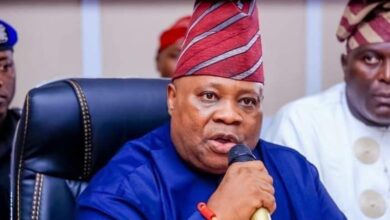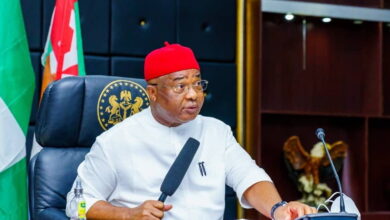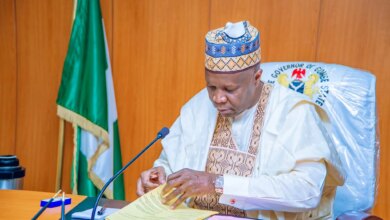CPPE explains reasons behind Nigeria’s inflation decline in September

The Centre for the Promotion of Private Enterprise, CPPE, has explained that Nigeria’s inflation dropped for the sixth consecutive time in September 2025 to 18.02 per cent, down from 20.12 per cent in August, due to a combination of structural and macroeconomic factors.
CPPE Chief Executive Officer, Muda Yusuf, made this known in a statement reacting to Nigeria’s latest inflation figures.
According to the economic think tank, the country is experiencing disinflation because of increased food supply resulting from the harvest season, the base effect of inflation, improved exchange rate stability, and better coordination between fiscal and monetary authorities.
The centre stated that the decline in inflation suggests that inflationary pressures are gradually subsiding and that recent policy measures are beginning to yield results.
According to the CPPE statement: “Increased food supply during the harvest season has moderated food prices. Also, the base effect of inflation rates in 2024 averaged above 30 per cent, creating a high statistical base that supports a relative decline in current inflation readings; the naira has experienced relative stability — and mild appreciation in some months — helping to moderate imported inflation; macroeconomic policy improvements through tighter monetary policy, reduced fiscal leakages, and better coordination between fiscal and monetary authorities have contributed to easing inflationary pressures.
“These factors collectively explain the progress made on price moderation, though the underlying structural issues that drive cost-push inflation remain significant.”
CPPE, however, clarified that the counterinflation levels remain high and continue to erode household purchasing power, undermine consumer confidence, and weaken real incomes.
It stated: “The sustained disinflation trend is a welcome development and a sign of improving macroeconomic fundamentals.
“However, the cost-of-living crisis remains acute, particularly for low- and middle-income households. The next phase of reform must therefore prioritise welfare-focused and cost-reduction measures that deliver tangible relief to citizens.
“Business confidence is rising, but consumer confidence remains fragile. Policies that enhance productivity, stabilise prices, and reduce the structural cost of doing business will not only strengthen the disinflation trajectory but also foster inclusive and sustainable economic recovery.
“With consistency, coordination, and structural reforms, Nigeria can achieve a stable single-digit inflation rate over the medium term — anchoring growth, improving welfare, and restoring confidence in the economy.”
CPPE stressed that “the gains achieved so far must therefore be consolidated through decisive and well-targeted policy actions.”
DAILY POST reports that Nigeria’s inflation dropped for the sixth consecutive time in September 2025.





